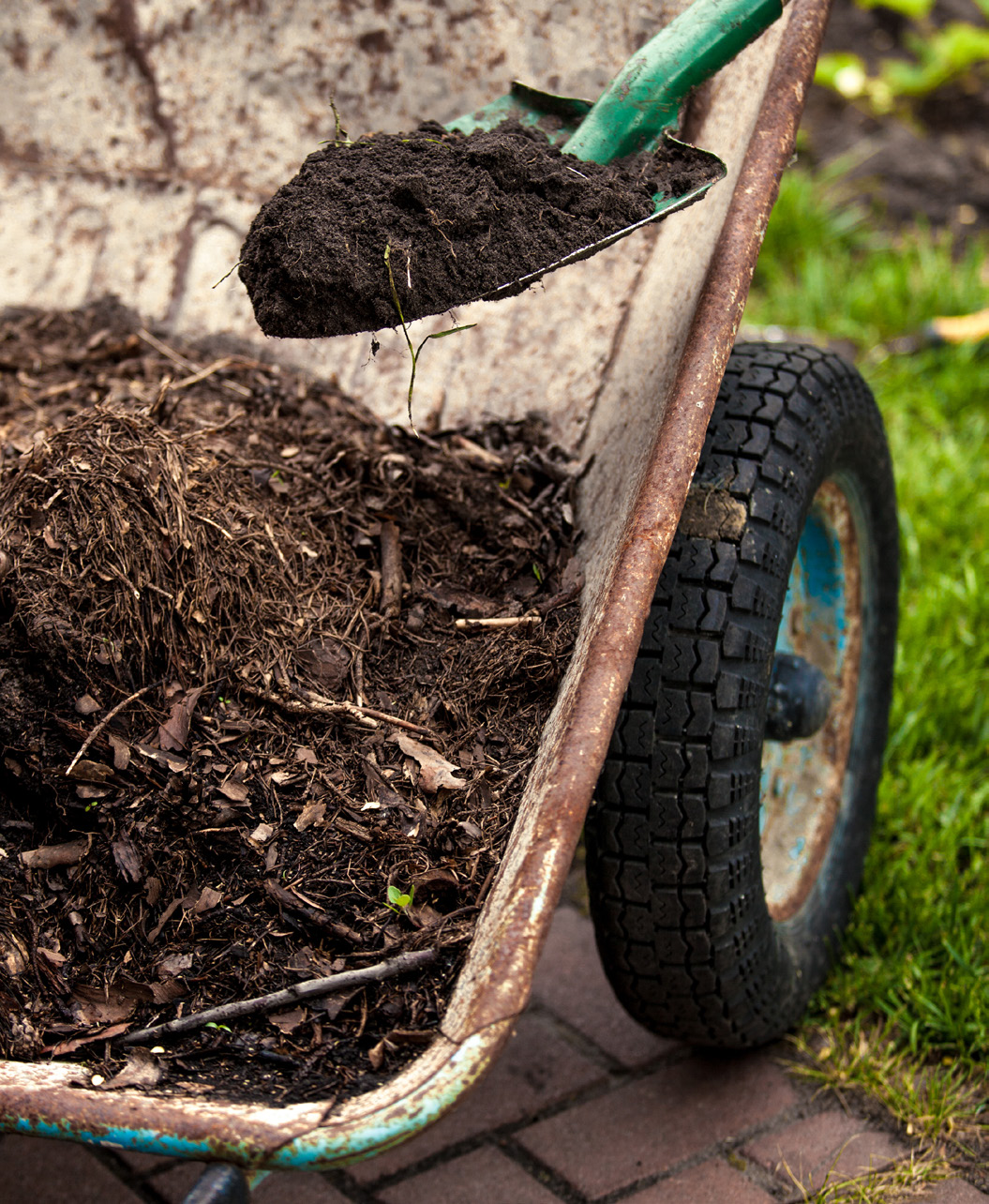By Ben Dayton
My wife and I cook a lot at home, and in the process of preparing food we end up with a lot of food scraps — carrot and avocado skins, eggshells and orange rinds, not to mention the occasional leftovers we let linger in the back of the fridge and forgot to eat. Hey, nobody’s perfect. I’d been throwing these food scraps in the trash for most of my life, until a few years ago when I discovered the wonders of composting. Now, we compost everything we can from the kitchen, and we’ve seen a big reduction in the amount of trash we put out on the curb. It feels good.
Perhaps your cooking also creates a lot of food scraps. What do you do with them? Do you, like many people, throw them in the trash? Have you ever wondered where all those trashed food scraps end up?
FROM THE TABLE TO THE LANDFILL
If you trash your food scraps, you’re not alone. According to Feeding America, approximately 72 billion pounds of perfectly good food — from every point in the food production cycle — ends up in landfills and incinerators every year. Also, food scraps make up one of the largest portions of the waste stream. But here’s why you should reconsider the habit: When put in the trash, food finds its way to your nearest landfill where it decomposes under anaerobic conditions, creating methane gas in the process. Anaerobic decomposition means your food scraps decompose without the aid of oxygen. This happens to material in a landfill because it gets so compressed by its own weight that all the oxygen (amazingly) gets pushed out.
Methane is a much more potent greenhouse gas than carbon dioxide. So a city’s worth of food scraps decomposing in a landfill means a whole lot of methane is being produced and released into the atmosphere, which contributes to global warming. Some landfills capture this methane, but the majority do not.
COMPOSTING IS THE CURE
That’s where composting comes in. It’s one simple way to help reduce greenhouse gases and make good use of your food scraps. It’s basically recycled food.
Composting takes food scraps and transforms them into a nutrient-rich soil additive using the natural process of aerobic decomposition (with oxygen). The final product can be added to topsoil in gardens to help plants grow without synthetic fertilizers. Compost is great for gardening in Arizona because it loosens hard soil, allowing roots to take hold more easily and increasing a soil’s capacity to retain water.
Many farmer’s markets have booths for dropping off your food scraps for free. The collectors get a material that they can use to make a quality gardening and farming product, and you get the peace of mind knowing you helped reduce waste. It’s a win-win. Some companies, such as Recycled City in Phoenix, will even pick up your food scraps from your home for a small fee. You just have to put out their container like you would your regular trash and recycle!
If you’re feeling ambitious, you can compost your food scraps at home in your backyard. It’s a safe and relatively simple process that doesn’t take much effort to get results. You could even ask your neighbors to contribute to your pile. In Arizona, composting is best done in a porous container protected from wildlife. The City of Phoenix offers composting containers constructed from old garbage cans, which can be picked up from a transfer station for just $5. Call the City of Phoenix at 602-262-6251 for more information.
Excuses for trashing your food scraps and yard waste are getting slimmer. Why not look into composting today and take useful materials out of the waste stream?

Your Composting Guide
courtesy of homecompostingmadeeasy.com
GET STARTED!
Steps to energize enzymes in the pile to break down materials correctly.
Keep a 1:2 ratio of green (new, wet, organic matter, that’s high in nitrogen) and brown (dried organic matter, that’s high in carbon) materials. The carbon and nitrogen are consumed by microbes, which break down organic matter. Add dry leaves on top to keep a good ratio going.
- Keep pile slightly damp (like a wrung out wet towel) to encourage enzyme activity.
- Turn pile once a week to mix ingredients and allow oxygen to reach all areas, and prevent mildew growth.
- Measure the pile’s temperature periodically to ensure decomposition is happening. The pile should be warm in the center, (130-150 degrees is ideal).
- If these parameters are in balance, pile will release a little steam when turned, and smell earthy, indicating you’re on the right track.
SCRAP THIS
- All your vegetable and fruit wastes, (including rinds and cores) even if they are moldy and ugly
- Old bread, donuts, cookies, crackers, pizza crust, noodles, anything made out of flour
- Grains (cooked or uncooked): rice, barley, you name it
- Coffee grounds, tea bags, filters
- Fruit or vegetable pulp from juicing
- Old spices
- Outdated boxed foods from the pantry
- Egg shells (crush well)
- Corn cobs and husks (cobs breakdown very slowly)
TRASH THAT
- Meat or meat waste, such as bones, fat, gristle, skin, etc.
- Fish or fish waste
- Dairy products, such as cheese, butter, cottage cheese yogurt, cream cheese, sour cream, etc.
- Grease and oils of any kind
WHY FISH, MEAT, DAIRY & GREASE CAN’T BE COMPOSTED
- They imbalance the otherwise nutrient-rich structure of other food and vegetation waste and breakdown slowly.
- They attract rodents and other scavenging animals.
- Meat attracts maggots.
- Your compost bin will smell to holy hell and back!
Ben Dayton is the content manager at Recyclebank. Recyclebank is a sustainability education program that shares interactive tips for reducing, recycling and reusing household items. Phoenix residents are rewarded for making a positive impact in the community. Sign up at recyclebank.com/phoenix.





